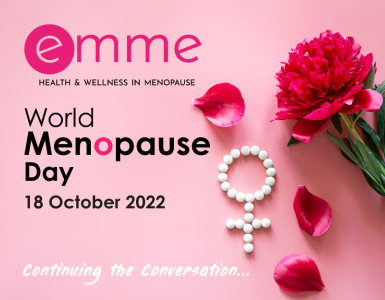So what is the reality of the male menopause
The word menopause is usually associated with women, but the male menopause is a very real thing, yet it’s often derided or dismissed as something that doesn’t exist.
So what is the male menopause and what symptoms does it cause?
The medical term for the male menopause is the andropause. It’s a perfectly natural event in a man’s life, and describes the natural decline in the level of testosterone that flows around a male body. This then results in a range of symptoms and changes.
Even though the andropause is caused by a drop in hormone levels, in this case, testosterone, it isn’t the same as the decline in oestrogen during the menopause in a woman.
The drop in testosterone in a male body is more steady than the often sudden drop in oestrogen levels in a female body. Although the andropause does tend to occur around the same age as the menopause, most commonly affecting men in their late 40s and early 50s.
What is the role of testosterone?
Testosterone has a few different roles within the male body. These include:
- Deepening the voices, encouraging the development of the genitals, increasing muscle mass and growing facial and body hair during puberty
- The quality of the sperm
- Sexual desire, sex drive and the ability to achieve an erection
- Typically ‘male’ behaviour, such as risk taking, aggressiveness and competitiveness
What are the symptoms of the andropause?
Not all men experience the symptoms of a decline in testosterone levels, but in those that do, it can cause:
- A decline in libido (sex drive)
- Problems achieving or maintaining an erection (erectile dysfunction)
- Depression
- Mood swings
- Lack of energy or enjoyment from things they used to enjoy
- Problems sleeping
- Tiredness
- Poor concentration and memory problems (cognitive function)
- Loss of muscle mass
- Increased fat around the middle and chest area
These symptoms can affect a man’s general happiness and lead to poor life choices such as eating a poor diet, smoking, drinking too much alcohol and not exercising enough.
Many of these symptoms can also be caused by stress
So if you’re concerned (or you’re concerned about your partner) it’s a good idea to seek medical advice to rule out any underlying problems.
A blood test to determine levels of ‘free’ testosterone (the type of testosterone that isn’t bound to protein, and is instead free to circulate around the body in the blood) can help to determine if testosterone levels have fallen. If this is the case, testosterone supplements in the form of skin patches, tablets, gels or injections can be prescribed which can help.
Either way, eating a healthy diet rich in vitamins and minerals will help to keep testosterone levels stable
Omega 3 fatty acids can also help, which are found in oily fish and walnuts. Supplements are also available from pharmacies and health food shops. Low fat, protein rich foods can also help, including chicken breast, white fish, pulses, nuts and seeds. Taking regular exercise will also help with both physical and mental symptoms associated with the male menopause.
















